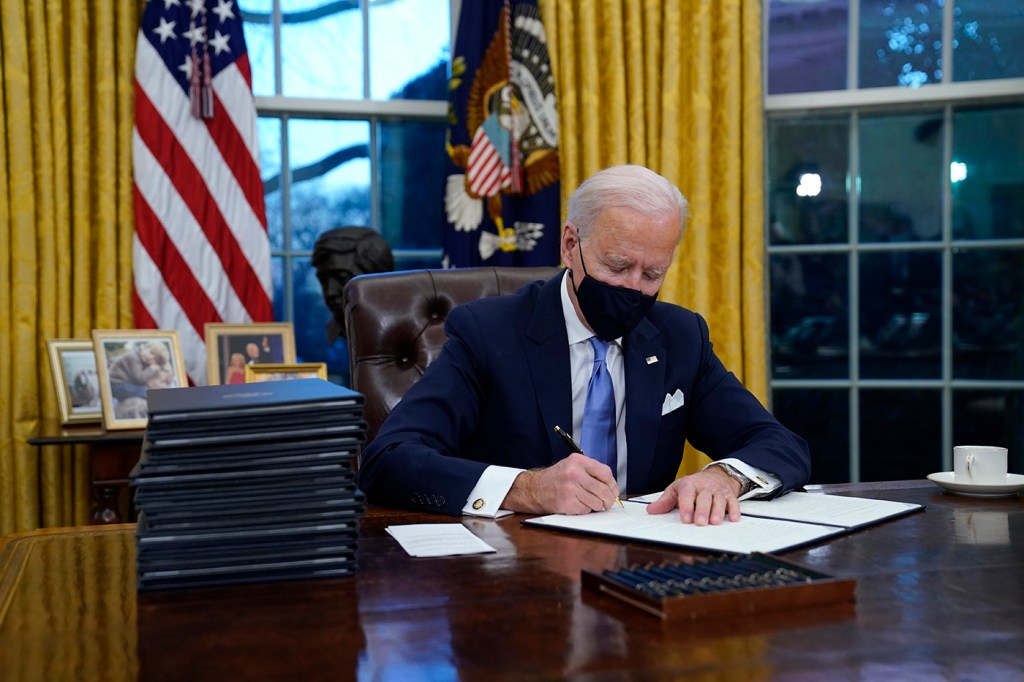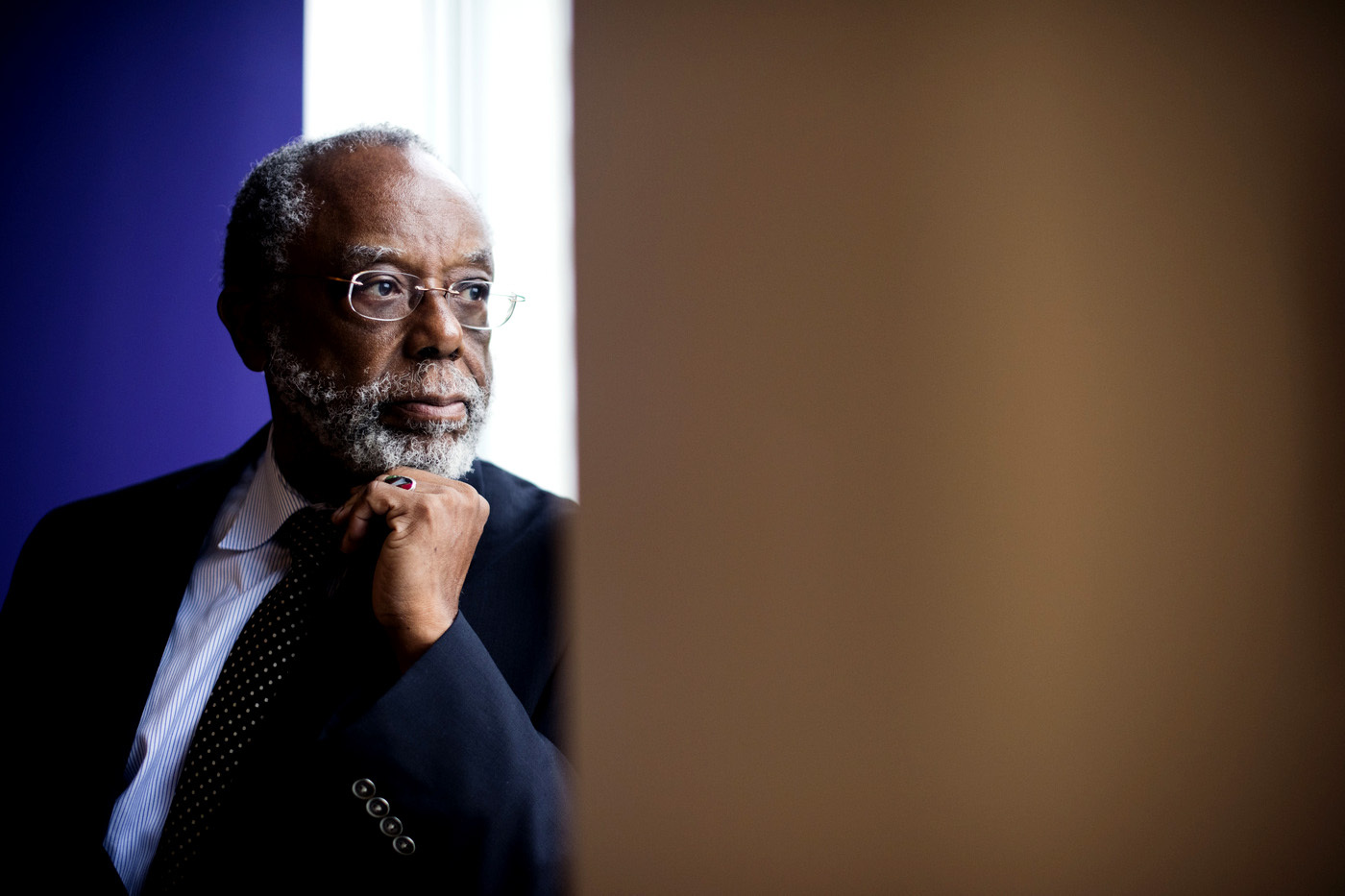Advice for Biden’s first 100 days: Bring in new perspectives and focus on the possible

President Joe Biden will be under pressure from a restless electorate to make good on his campaign promises. And Biden got to work quickly on his first full day in office, signing a flurry of executive actions and signaling his top Congressional priorities, from the economy to immigration.
We asked Northeastern faculty experts to predict what Biden will attempt in his first 100 days—and what’s in the realm of the possible— on the economy, healthcare, and social justice causes. Comments were edited for brevity and clarity.
“We’re going to need another fiscal relief package early on.”
Bob Triest, chair of the Department of Economics
—
The number one thing that Biden can do to improve economic performance is to address the pandemic surge. The reason the economy is so slow is that it’s not safe right now for people to be going to bars and movie theaters and concerts. The economy really can’t improve until the pandemic is back under control.

Bob Triest, chairman of Northeastern’s economics department. Photo by Matthew Modoono/Northeastern University
Biden should band together with Congressional Republican leaders as well as Democrats—and show bipartisan support for things like mask-wearing, social distancing, and, if necessary, further restrictions on social gatherings and business operations. If he can get the infections down, and we have most of the population vaccinated by the end of June, then we won’t be back to normal, but we’ll be back to a state where people feel a lot more comfortable going to businesses and spending their money.
We’re also going to need another fiscal relief package early on. There needs to be a safety net for the unemployed who cannot, for whatever reason, get back to work. I’m really hopeful Biden will be able to negotiate something to get that through. There are actually a number of areas of bipartisan cooperation in the $900 billion package that just passed, so there is some grounds for hope there.
Picking Janet Yellen as Treasury secretary is another area of compromise. Republicans know her. The message that Biden is sending with her appointment is that he values competence, experience, and sound judgment over ideology or party connections.
“It’s going to be hard to get a Medicare-like public option.”
Wendy Parmet, Matthews distinguished university professor of law and director of the Center for Health Policy and Law
—
Given the narrow Democratic majority in Congress, the Biden administration is going to have limited political capacity to make significant changes to the Affordable Care Act—assuming that the Supreme Court does not strike it, as seems unlikely.

Wendy Parmet, Matthews distinguished university professor of law and director of the Center for Health Policy and Law. Photo by Mary Knox Merrill/Northeastern University
It’s going to be very hard to get a Medicare-like public option on the ACA. You would think that given a pandemic and millions of people have lost health insurance, the politics would be different, but I’m not optimistic about that.
There are things inside the ACA and inside Medicaid that can probably make a difference, such as more open enrollments periods during a public health emergency and giving waivers to states to make it easier to enroll people.
One of the things I’ve been working on is the public charge rule, which relates to certain classes of non-citizens. Under a provision that has been in our immigration laws since 1882, many classes of immigrants are ineligible to receive a visa or permanent residency status if they are found likely to become a public charge—that is, receive public benefits.
Prior to a rule change by the Trump administration, the receipt of non-cash benefits, except for long-term care, did not enter into the public charge determination.
The Trump administration rule changes that. The evidence has become pretty clear that the new rule has frightened a lot of people away from Medicaid and other essential benefits. Indeed, the rule has also dissuaded people who are not subject to it to avoid benefits. Reversing the rule needs to be a priority for the new administration.
The Biden administration can suspend the rule during the pandemic and then begin the administrative process of rolling it back. That may encourage more people who are eligible for Medicaid—poor citizens and undocumented people—to get their kids enrolled. That can make a difference.
“Diverse people inevitably bring diverse perspectives to the work they do.”
Ted Landsmark, distinguished professor of public policy and urban affairs and director of the Kitty and Michael Dukakis Center for Urban and Regional Policy
—
I was deeply involved with the city government in Boston during the 1980s, when a crack cocaine epidemic was sweeping through and decimating our Black communities. A number of policies were put in place to try to stem quickly the effects of the crack cocaine epidemic on communities of color.

Ted Landsmark, distinguished professor of public policy and urban affairs and director of the Kitty and Michael Dukakis Center for Urban and Regional Policy. Photo by Adam Glanzman/Northeastern University
Some of those policies, it turns out, while they removed a lot of crack dealers from the streets, also had negative effects on law-abiding residents. Therefore, as is the case with many laws, a reassessment is clearly in order.
That reassessment needs to weigh the social costs of implementing some policies that might be better addressed through other forms of social support.
Merrick Garland [Biden’s nominee for attorney general] brings the qualities and the experience necessary to both understand and move forward with legislation and policies that could more fairly address issues of race and social justice.
Biden’s pick to head the Justice Department’s Civil Rights Division should be someone who has a clear understanding of how the civil rights laws can create opportunities for dispossessed people throughout the country—and are a tool of opportunity.
Appointing an African American woman to the Supreme Court would bring an important set of perspectives to discussions about laws which, on their face, may seem neutral, but have a negative impact on women and people of color.
Diverse people inevitably bring diverse perspectives to the work they do. So having an African American woman on the Supreme Court would raise the sensitivity across the board—of all of the justices and their clerks—to the challenges that American families face.
For media inquiries, please contact media@northeastern.edu.





